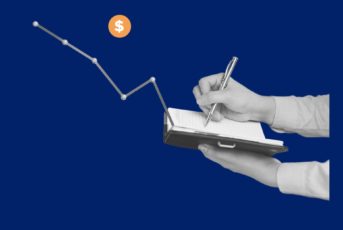1. When should I use my emergency fund?
This is a fantastic question because I commonly write about how people should maintain an emergency fund commensurate with the nature of their jobs and their social safety nets. Just to recap, the more volatile your job or the less predictable your income, the larger your emergency fund should be. However, if you have a social safety net in that you have financially stable parents, close relatives, or friends who can help you financially if you are in a pinch, the smaller your emergency fund can be. Keep in mind that you can also use a Roth IRA to maintain your emergency fund because your contributions can be withdrawn at any time without tax or penalty. But when is it ok to use your emergency fund? Here is a short list to help you not feel guilty when dipping into your emergency fund: major car or house repairs, unexpected medical bills, job loss, death in the family, etc. A vacation does not qualify. Lastly, it should go without saying that if you deplete your emergency fund, your top priority should be to replenish it pronto.
2. Is the S&P 500 a good index?
This is a recent question that came up with a client while I was defining the S&P 500. Most people are familiar with the Dow Jones Industrial Average because it’s the oldest and most publicized benchmark, but it’s only comprised of 30 stocks so it’s not a good representation of the overall market. The S&P 500 is an index comprised of the top 500 US companies. Therefore investors rely on the S&P 500 when they want to gauge and compare their portfolios to the overall US market. However the S&P 500 has one major disadvantage – it’s a market weighted index. A market weighted index means that the most expensive companies have the greatest impact on the index. For example, as of September 2013, the technology sector (specifically Google, Apple, and Microsoft) represents 18 percent of the index; financials (specifically Berkshire Hathaway and Wells Fargo) represent 16 percent; and the healthcare sector (specifically Johnson & Johnson) represents 13 percent. As you can see, only 6 companies make up 47 percent of the S&P 500 value! So while the S&P 500 is still a useful benchmark for U.S. market, investors should be aware that the index is highly concentrated by the most expensive companies.
3. What is an Exchange Traded Fund (ETF)?
An ETF is an investment that is very much like a mutual fund in that it represents a diversified basket of stocks with a specific objective (i.e. U.S. large cap, international, small companies, etc.). ETFs are very appealing to many investors because they trade just like stocks so that you can buy or sell them throughout the day. With one share of an ETF, you can essentially gain exposure to almost any segment of the market you want. Want to invest in only Brazil, or India, or social media companies? There is an ETF for that. The more popular and widely used the ETF, the cheaper and more accessible it will be. ETFs are also eligible for margin and more advanced investors can short an ETF or trade its options. Not all ETFs have stocks or bonds as their underlying assets so make sure to really understand the fund’s objectives; for example, some ETFs only use derivative instruments and they are considered risker because derivatives are simply contracts whose values are based on an asset.
4. What is the difference between an ETF and a mutual fund?
ETFs and mutual funds are very similar in that they both give investors diversified exposure to a market segment. However, your personal preference and objectives will determine whether a mutual funds or an ETF is the right fit for you. Do you want to make small monthly contributions into your account? Then choose a mutual fund. Do you want to quickly buy and sell investments in your portfolio? Then choose an ETF. Do you want to move from one asset class to another without cost? Then choose a mutual fund. For a detailed article on the differences between an ETF and a mutual fund, click here.
Have a financial question? Contact ACap Asset Management at info@acapam.com or 818-272-8511.
Ara Oghoorian, CFA, CFP® is the president and founder of ACap Asset Management, Inc., a “Fee-Only” investment management firm located in Los Angeles, CA specializing in helping doctors and physicians make sound financial decisions. Visit us at www.acapam.com









